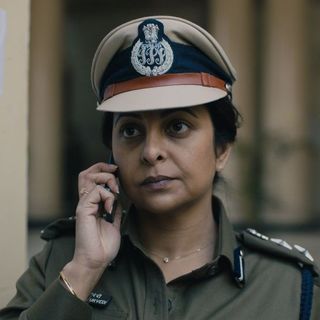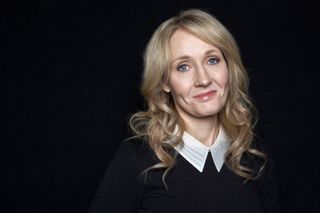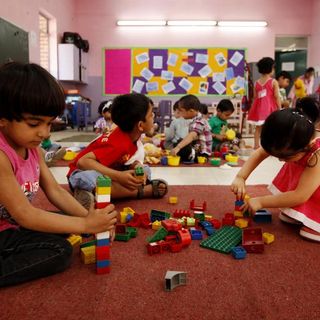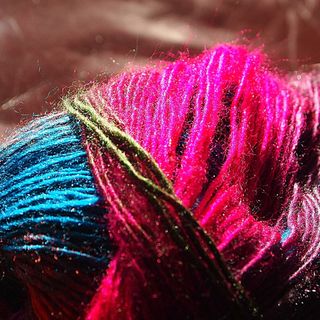
The Faux Progressivism of J.K. Rowling
The author has been retrospectively inserting woke themes into the Harry Potter universe and it’s gravely opportunistic.

There have been no new additions to the main Harry Potter series for almost a decade — the books were done in 2008, and the last movie was released in 2011. There have, however, been numerous plug-ins, to characters and to the wizarding world, through the author J.K. Rowling’s Twitter account. The rampant retrospective revisionism, also known as retconning, of attributing progressive ideologies to the story — in light of increasingly mainstream discussions around gender and race issues — has caused fans to question the ethics of rewriting history, and just how venerable the British novelist is.
There’s even a meme making the rounds on social media, for example, “Anyone: | J.K. Rowling: dobby assassinated princess diana,” which makes light of the author’s well-documented instincts to drop woke (see: Hogwarts is LGBTQ friendly), and sometimes absurd (see: witches and wizards shit themselves where they stood before modern plumbing) facts seemingly out of nowhere.
For example, she introduced a Native American narrative in “A History of Magic in North America,” a series she wrote in 2016 that documents the journey of an Irish girl, Isolt Sayre, who sails to Massachusetts on the Mayflower. She meets some colonial settlers, founds a wizarding school with them, and names one of the houses Pukwudgie, inspired by a Native tribe lore. Rowling fails to mention any Native Americans living nearby, or admitted to the school as magicians. She drew ire from scholars for appropriating Native American culture, without having taken the time to represent a single magical Native human being in the story, Salon reports.
In Harry Potter and the Cursed Child, a play she wrote in 2016, critics have identified instances of queerbaiting. Rowling hinted at homoeroticism between Albus Potter and Scorpius Malfoy, but just barely enough not to alienate any fans that would have a problem with queer representation while still appealing to the LGBTQ community, The Guardian reports. Rowling has also been accused of engaging in similar queerbaiting in her representation of Dumbledore, whom she declared to be gay in 2008. When the audience at a book tour event in New York asked if Dumbledore ever found love, she outed the Hogwarts headmaster as a gay man, and went so far as to claim she rejected a heterosexual courtship arc for the character in the production of the movie, Harry Potter and the Half-Blood Prince, BBC reports. Her words, which at the time were lauded by LGBTQ activists as an accepting gesture of queer representation much needed in children’s books, have not translated to her scriptwriting for the Fantastic Beasts movies, which still shy away from portraying any openly queer narratives.
Continuing the ‘Dumbledore has always been gay’ narrative, she announced in March that he had a passionate love affair with his friend-turned-archenemy Gellert Grindelwald. No such representation, however, has been translated into the Fantastic Beasts movies yet. David Yates, director of Fantastic Beasts: The Crimes of Grindelwald, added, “This is a story about two men who loved each other, and ultimately have to fight each other. It’s a story for the 21st century,” Vulture reports. That’s just it: Neither the original Harry Potter books and movies, nor the new Fantastic Beasts franchise, betray any of these neoteric, inclusive narratives. While completely absent from the original series, their inclusion in the new franchise remains entirely theoretical. The failure to translate these narratives into the actual work, while incessantly posturing progressivism on social media, feels a tad opportunistic, and given Harry Potter’s pervasive popularity, quite unnecessary.
Not all fans, however, consider Rowling’s behavior problematic. “A lot of her homophobic fans weren’t happy with [Dumbledore being gay] and that pissed her off. That’s why I think she’s expanding more on that now,” Simar Singh, 24, said. “So people stop cringing at every piece of homosexual material they see and accept that it’s natural and does belong in mainstream culture like it has been since centuries.”
Other Harry Potter aficionados are not ready to give the author the benefit of the doubt. Rowling’s “faux liberalism” is “an attempt to curry favour and win brownie points with minorities,” HP fan Pritesh Patil, 27, said. “What they say is true. Never get to know your heroes. J.K. Rowling used to be one of mine, and it has been heartbreaking to see her fall.”
When a Twitter user wondered if Hogwarts was a safe place for LGBTQ students, Rowling agreed and responded with a meme that said, “If Harry Potter taught us anything, it’s that no one should live in a closet.” When asked about the existence of Jewish students at Hogwarts, she revealed a certain Anthony Goldstein, who was apparently one of the original set of 40 student characters she created for the first book, Harry Potter and the Philosopher’s Stone, The Guardian reports. The character doesn’t show up until the fifth book, his character existing to have one small, irrelevant conversation with Harry Potter.
Rowling’s penchant for revisionism spans social, as well as political, issues. When a Mic article calculated the hypothetical cost of going to school at Hogwarts, Rowling tweeted that Hogwarts was free, and that the Ministry of Magic paid for everybody’s tuition — slickly adding that Muggles (common folk of the real world) need to get on board with providing free education. This blatant rewriting is problematic, not only because it’s in Rowling’s own self-interest to adjust the Harry Potter universe to today’s modern-day reality, but also because for the most part, it’s just her, on Twitter, putting out random ‘facts,’ and not following up with any concrete activism.
Looking at all the excessive posturing on social media, Patil said, “[Rowling] inspired a generation. And that same generation can see through her attempts at dressing up minorities for credit, much like the reporter from her books, one Rita Skeeter.” Patil has yet to laud Rowling for a major character either written as, or played by, a person of color, he said. “And no, retconned black Hermione or one-arc-Leta-Lestrange doesn’t count.”
Another instance where Rowling’s hypocrisy was laid bare was when she she backed the casting of Johnny Depp for Grindelwald in the Fantastic Beasts franchise and lost favor with many of her supporters. Depp has been legally accused of domestic violence by his former wife, Amber Heard. Following a publicized divorce process, the couple settled their disputes in 2016. While fans vehemently called for Grindelwald’s character to be recast, Rowling put out a statement backing the choice: “Based on our understanding of the circumstances, the filmmakers and I are not only comfortable sticking with our original casting, but genuinely happy to have Johnny playing a major character in the movies.”
In another controversy surrounding the Fantastic Beasts sequel, Rowling portrayed Nagini — who was originally a snake in the Harry Potter series — as a Maledictus, a human being who transforms into an animal with more and more frequency over a lifetime, until they are permanently stuck that way. When the movie was later cast with Nagini played by a (human, non-snake) South Korean actress, Claudia Kim, HP fans took to social media to criticize Rowling for parachuting diversity into her narratives, Bustle reports.
In her defence, Rowling tweeted out that “The Naga are snake-like mythical creatures of Indonesian mythology, hence the name ‘Nagini.’ They are sometimes depicted as winged, sometimes as half-human, half-snake,” stressing that her inspiration for Nagini had always had South Asian roots. However, fans pointed out that Rowling got the wrong country; the word ‘Nagini’ comes from Sanskrit, and was first depicted in the religions of Hinduism. Rowling had also portrayed Nagini as an Albanian viper in initial Harry Potter novels, which definitely signals that the sudden eruption of a South Asian narrative had not been on the author’s mind when she conceptualized the character.
Rowling’s addition of woke themes to Harry Potter, albeit with the times, fail to serve any other purpose than bolstering her social and financial reputation. Any new Harry Potter reader or movie-watcher won’t be able to identify the Jewish student, or recognize and relate to any queer relationships — because they don’t exist in the literature. Saying they do doesn’t make it so. If her declarations were realized into the new Harry Potter-adjacent material coming out, like the Fantastic Beasts movies, her posturing could hold some value. But her writing is still teetering on the boundary between offering minimal representation, and refraining from offending her more conservative fans.
There’s no doubt that the wizarding world created by Rowling built a worldwide community, made most 11-year-olds long for an owl to show up at their door, and blossomed into an empire replete with retail paraphernalia and amusement parks all over the world. With a younger generation insistent, and adamant, about looking at their pop culture consumption through the lens of inclusivity, it makes sense for Rowling to attempt to rewrite history and keep Harry Potter, a world defunct for 11 years, still in the public eye. The artist’s ability to make this world come alive is not in question, but her need to somehow make this world relevant to modern day, is.
As Dumbledore says in Harry Potter and the Chamber of Secrets, “It is our choices, Harry, that show what we truly are, far more than our abilities.”
Rajvi Desai is The Swaddle's Culture Editor. After graduating from NYU as a Journalism and Politics major, she covered breaking news and politics in New York City, and dabbled in design and entertainment journalism. Back in the homeland, she's interested in tackling beauty, sports, politics and human rights in her gender-focused writing, while also co-managing The Swaddle Team's podcast, Respectfully Disagree.
Related


Under Pressure, Parents Go to Great Lengths for Preschool Admission
